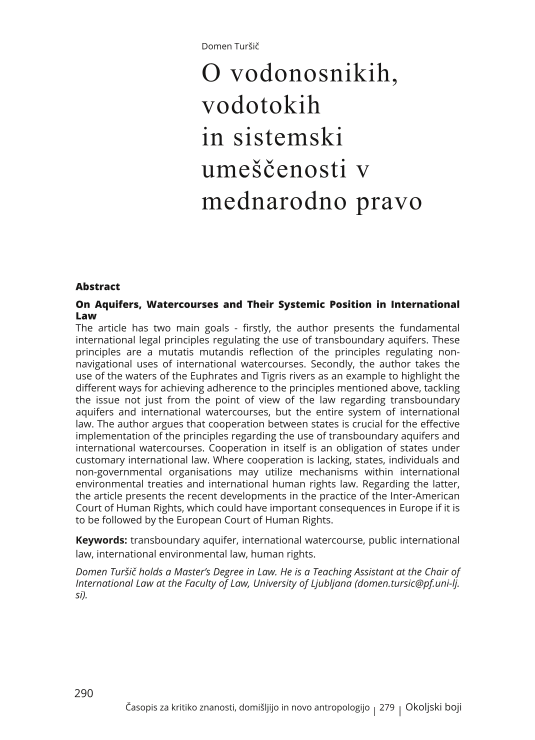The article has two main goals -firstly, the author presents the fundamental international legal principles regulating the use of transboundary aquifers. These principles are a mutatis mutandis reflection of the principles regulating non-navigational uses of international watercourses. Secondly, the author takes the use of the waters of the Euphrates and Tigris rivers as an example to highlight the different ways for achieving adherence to the principles mentioned above, tackling the issue not just from the point of view of the law regarding transboundary aquifers and international watercourses, but the entire system of international law. The author argues that cooperation between states is crucial for the effective implementation of the principles regarding the use of transboundary aquifers and international watercourses. Cooperation in itself is an obligation of states under customary international law. Where cooperation is lacking, states, individuals and non-governmental organisations may utilize mechanisms within international environmental treaties and international human rights law. Regarding the latter, the article presents the recent developments in the practice of the Inter-American Court of Human Rights, which could have important consequences in Europe if it is to be followed by the European Court of Human Rights.




